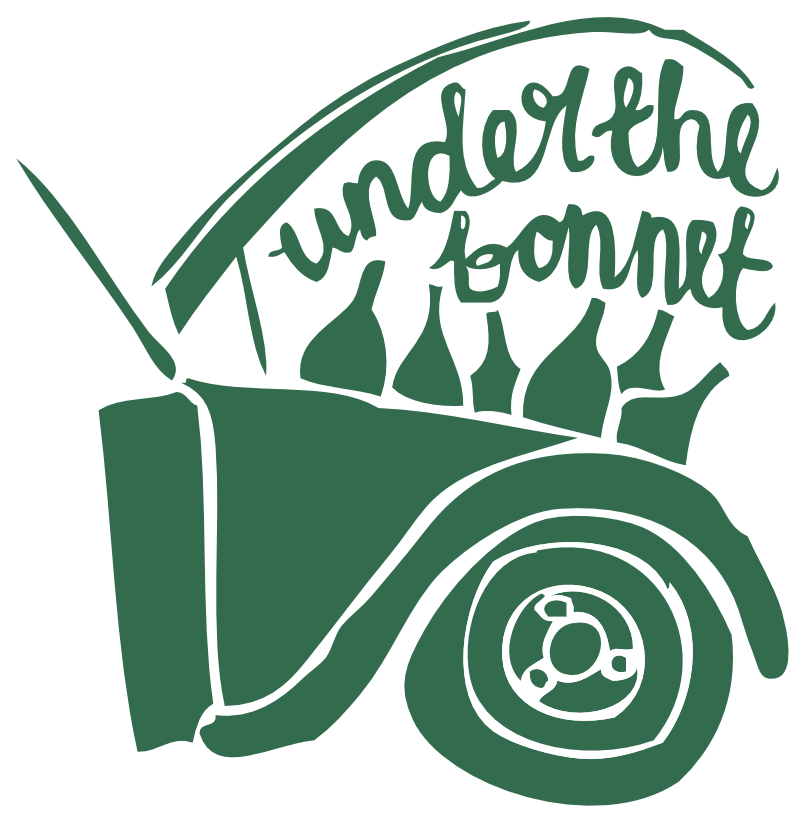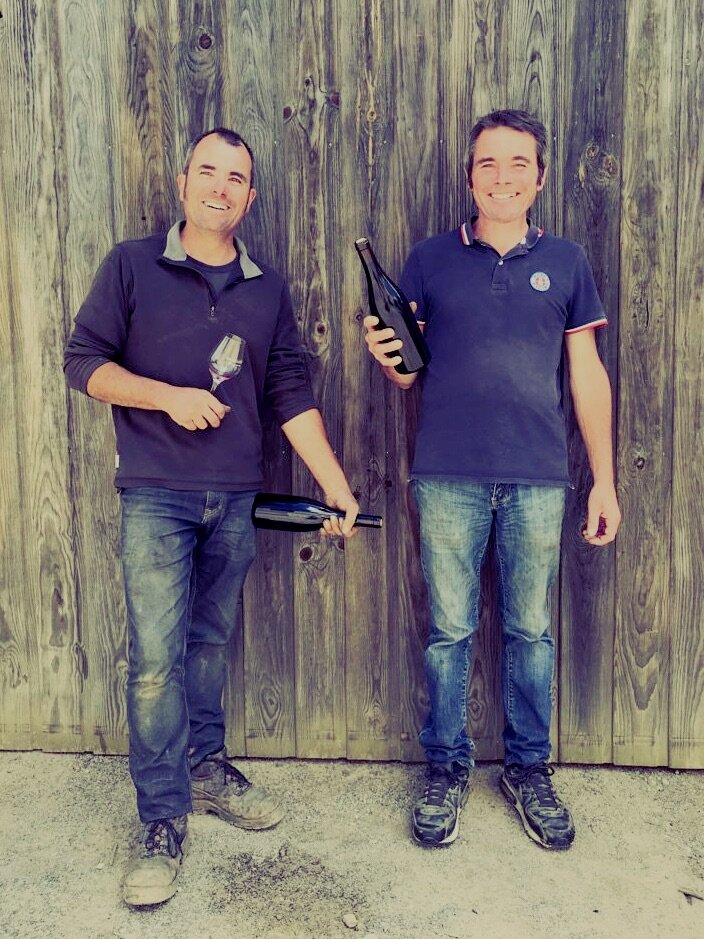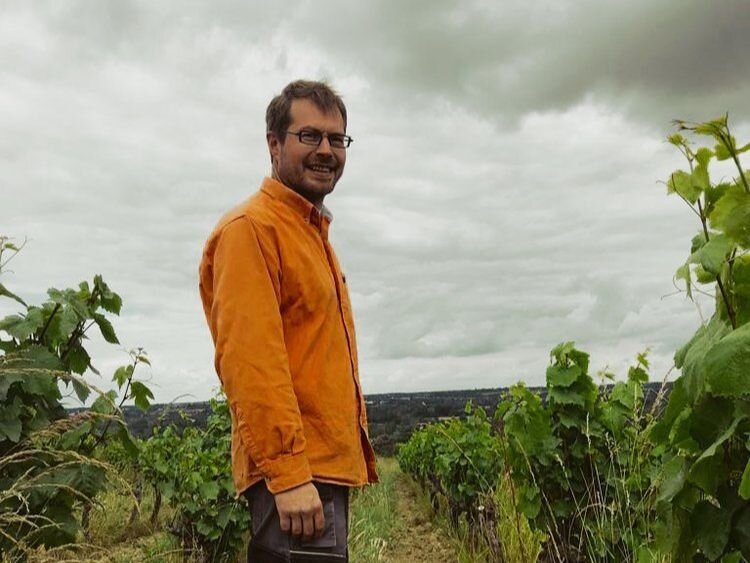Tenuta Forresto
Italy, Piedmont, Nizza
Just in time for Autumn, we have received a fresh arrival of new wines from Francesco & Pauline, young winemakers located in Nizza Monferrato, a little south of Asti.
Skin-macerated whites, lightly sparkling Barbera and semi-carbonic Dolcetto: the wines of Piedmont are ideal drinking as the days shorten and the leaves drop.
Francesco & Pauline follow the Fukuoka method; a practice pioneered by Masunobu Fukuoka: a Japanese farmer and philosopher. He referred to his work as ‘do-nothing farming.’ His methodology promoted minimal interference in the agricultural process; creating conditions in which natural processes left to their own accord maximise outputs.
For Francesco, working with the land and having an interest in sustainable agriculture prior to winemaking led him to seek out Fukuoaka’s manifesto ‘The One Straw Revolution’ early on in the project.
“I found the book and it was mind blowing. I was honestly a bit sceptical at first; I didn’t believe this could be viable, it seemed crazy. But the results straight away were just so encouraging.”
They have a holistic approach in the vineyards, aiming to have as low an impact on the local ecosystem as possible. Their 10-70 year old South-West exposed vines are planted over 'tufa' (limestone), clay and chalk.
We caught up with Francesco on a day that found him finishing the planting of his cover crop,and getting ready to press his Barbera for the 2020 La IDEAle…
How’s the harvest been for you this year?
“Not the best… we got four big hail storms this year. It's been pretty devastating. We had to do a massive selection of all the clusters, to make sure they were clean to bring to the cellar. It was a very long process, everything was really damaged. But apart from that, I have to say: I’m really happy. The quality of what we’ve kept has been really good. The fermentations have been going really well; that’s a... silver lining.”
We’ve just received a few new releases from you, your macerated whites and your lighter reds. Could you tell us your process for those?
2019 - Favonio - Moscato Bianco
“You’ve received the 2019 so has a three-day maceration before pressing off the skins to continue fermentation in concrete tanks. After malolactic finishes a couple of months later, we do some racking, and transfer into 700L oak Tonneaux. Used wood obviously, not new.That stays there for nine, 10 months before bottling, no sulphur.”
2019 - Leuto - Cortese
“The Cortese ferments in concrete tanks, on the skins for 1 month. We do - how do you say in English, cracking the hat? Punch down! We do those 3 or 4 times a day, then press the skins after a month of fermentation. Then it goes into smaller barrels, a mixture of oak and acacia for about 8 months, before bottling with no added sulphur.”
2019 - La Comedie - Barbera
“So it’s the first grape we pick, because we want higher acidity, and less alcohol. We try not to do too many pump overs because we don’t want all the fermentation to go. It ferments until the cold weather starts to kick in, and stops at about 13g/l of sugar, and then we bottle it. This is the first time that the fermentation has slowed before bottling and I’ve not had to add any frozen must, so these are really good! Ancestral sort-of style.”
2019 - PauPau - Dolcetto
“The Dolcetto is picked slightly earlier than normal to have less alcohol volumes, around 12.5% or less.We do 10 days of carbonic maceration. After that we press it and allow it carry on with the fermentation that takes an extra two weeks. Then aged in concrete!Dolcetto in the area here can be so standardized, I’m not often a fan of them. I was really just trying to push the wine in a different direction, hoping for a much fruitier, less typical side to it.”
We’ve had your 18 Barbera cuvees in London for a little while over summer now, and they’re really starting to come into their own as the weather turns. Can you tell us about the process behind those?
“The main difference between the Acrú & La IDEAle is the vineyard, and fermentation. La IDEAle ferments in concrete tanks, and macerates for around 20 days. Then we move it into 2000l oak barrels. I tried to touch it as little as possible, because I want to bottle it with some very small amounts of residual sugar to remain.
“Before I started my own project, I would go to visit Lino Maga at Barbacarlo every other week, to try and learn from his process. He was repeatedly telling me to do this, bottle with a little residual, in late April, under a waning moon. His idea is that bottling with a hint of carbonation will preserve the freshness and fruitiness for years. So that’s what I’m trying to achieve. Not all the bottles will have the carbonation but, the ones that do; they’re the lucky bottles!
“The Acru is the oldest Barbera vineyard (we have a minimum of 45 years and the oldest is 70 years) and we ferment it in wood, for about 30 days with the skins. We do two to three punch downs a day, then it stays for a minimum 12 months in the barrels before bottling. I’ve always been fascinated by Barbara.
That's one of the main reasons I moved to Monferrato. I wanted to work with Barbera.”
How has your work with the Fukuoka method been going?
“I love to work in that style, fully observing nature and the natural processes, rather than intervening with any preparations. So we do a lot of cover crop work. We don't turn the soil. When the cover crop matures we cut it and spread it across the vineyard as a vegetation blanket. Even after one year of experimentation we saw great results, but the vegetation blanket really saved us this year.
“In July we had two weeks of 40 degree days, but when we lifted this layer of vegetation it was super humid underneath. The aim is to maintain that whole life-system of bacteria and microorganisms, by keeping things humid and damp. Once it’s dry, nothing thrives.
“The effects of climate change here on the weather patterns have been drastic. This is the thing we have to do; think about in advance each winter, to take a risk on the pruning style, take a risk on the way we plant a cover crop. Everything we are doing now is to make a decision on how we’ll have to fight the climate change in the coming year.
It’s a challenge. But, I’m loving it.”
Now in Stock
Sparkling
NEW 2018 - La Comedie - Barbera
Skin
NEW 2018 - Favonia - Moscato Bianco
NEW 2018 - Leuto - Cortese
Red
NEW 2019 - PauPau - Dolcetto
2018 - LA IDEAle - Barbera
2018 - Acrú - Barbera
WHOLESALE ONLY
FOR PRICE LIST ENQUIRIES, PLEASE EMAIL hello@winesutb.com

































